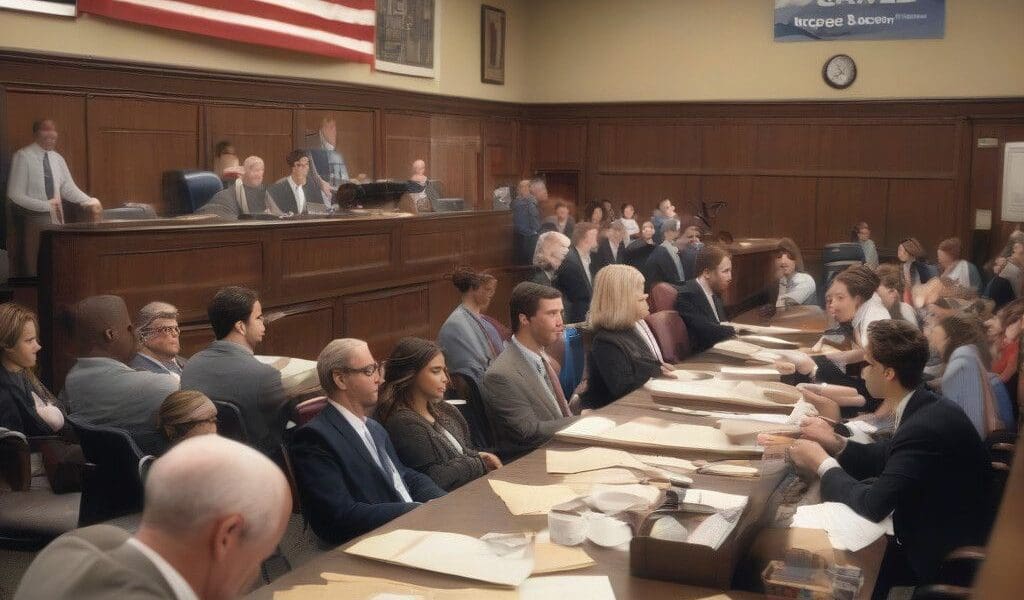As the legal saga surrounding the proposed merger between Kroger and Albertsons unfolds, Colorado is set to become the latest battleground. A trial poised to begin on September 30 aims to challenge the $24.6 billion merger, following similar proceedings in Washington state. Colorado Attorney General Phil Weiser has initiated a lawsuit arguing that the merger would significantly reduce competition in an already highly concentrated market, which would ultimately have detrimental effects on consumers and employees alike.
Kroger, a retail giant operating over 140 King Soopers and City Market stores in Colorado, and Albertsons, which runs more than 100 Safeway and Albertsons stores, collectively control more than 50% of the state’s grocery market. Weiser’s office cautions that if both companies are allowed to merge, it may lead to store closures, job losses, higher prices, and reduced customer service quality across Colorado’s supermarket landscape.
During a series of 19 town halls across the state, Coloradans expressed deep concerns regarding the potential adverse impacts of this merger. A common sentiment emerged that greater consolidation would diminish the competitive landscape, leading to notable drawbacks for consumers, workers, and suppliers. Attorney General Weiser stated, “Coloradans are concerned about undue consolidation and its harmful impacts on consumers, workers and suppliers.” The feedback gathered has significantly influenced the attorney general’s resolve to block the merger.
The lawsuit did not come as a surprise; it followed a comprehensive yearlong investigation into the implications of the merger. Kroger had attempted to dismiss this lawsuit earlier in the summer, but the motion was denied. The court’s ruling suggested that Kroger, due to its operation in Colorado, is obligated to adhere to the state’s antitrust laws. Kroger’s CEO Rodney McMullen remarked after the court decision that they are “prepared to defend” the merger, indicating the company’s readiness to aggressively pursue the deal.
The upcoming Colorado trial is expected to last two weeks and is pivotal in determining the outcome of this merger. Meanwhile, the case in Washington has also been making headlines, entering its seventh day on September 25. This trial has focused on the extent of competition in the grocery and household goods sectors, emphasizing that Walmart, Costco, and Amazon also play significant roles in this space.
Kroger’s stance advocates that the merger will create a more competitive entity capable of offering lower prices and improved services. The company claims that past mergers have resulted in efficiencies that benefit consumers by lowering prices. For context, Kroger has stated that after its previous mergers, it has been able to pass cost savings on to customers.
However, the counterarguments stress that fewer competitors result in higher prices and less choice for shoppers. The Colorado attorney general’s office asserts that all evidence points to the merger’s potential to harm the grocery environment further, rather than enhance it. The fears echo memories of a previous merger—the Haggen bankruptcy—which saw severe consumer consequences, creating skepticism toward this latest Kroger-Albertsons deal.
Amidst these challenges, both Kroger and Albertsons await a decision in a separate FTC trial in Oregon, which wrapped up on September 17, leaving the future of this $24.6 billion merger hanging in the balance.
With grocery prices under scrutiny, particularly as inflation affects food costs nationwide, scrutinizing mega-mergers such as Kroger and Albertsons is crucial. American consumers are already feeling the pressure from rising prices; thus, any actions leading to market consolidation may exacerbate these economic challenges.
As these significant legal battles articulate broader questions about competition in retail, the juxtaposition of corporate ambitions against consumers’ rights serves as the crux of this ongoing narrative. The outcome of Colorado’s trial, alongside developments in Washington and Oregon, will undoubtedly offer insights into the future of grocery retail in the United States and the implications for both consumers and the wider industry.
In conclusion, as the trial approaches, retail stakeholders and consumers alike are keenly observing how this case may reshape the grocery landscape. Those in the food retail sector should prepare for potential shifts in market dynamics, making it essential to remain informed and adaptable as additional developments unfold.












